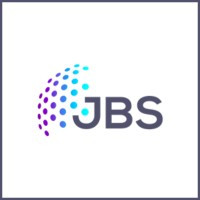Division of Integrated Healthcare
Love to swim in data and improve its value to end users? Come work for the Office of Financial Services within the Utah State Medicaid program as a
Data Scientist.
Medicaid is a valuable public good that around 15% of Utah’s population accesses every year. The Data Scientist role allows you to directly impact the individuals who rely on these services by providing reports, visualizations, and predictive analytics to the legislators, federal agencies, and advocacy groups in charge of improving access to care and health outcomes. For information about Utah’s Medicaid program please
This position requires advanced programming experience with SQL and relational databases. Critical thinking is a must as the right answer is not always obvious or known. Having extensive experience with the Python programming language is also strongly preferred.
A skills test will be administered to assess skills needed for this position prior to interviews being scheduled.
Preference may be given to those with a completed Master's degree in Statistics, Economics, Mathematics, Finance, or a related field as determined by the hiring official.
Why work for the Utah Department of Health and Human Services? Check out the rich benefits the State of Utah offers.
I. Data Pipeline Engineering & Productionization
-
Business Logic Translation: Systematically analyze, reverse-engineer, and translate complex, proprietary business logic, rulesets, and calculations (currently residing in End-User Computing (EUC) tools like Microsoft Excel and Access) into robust, version-controlled Python and SQL code.
-
Pipeline Engineering: Design, develop, and maintain efficient, scalable data transformation pipelines using Python and advanced SQL to ensure reliable, high-quality data delivery for core financial reporting, operational metrics, and compliance requirements.
-
Code Governance and Auditability: Implement rigorous software engineering best practices, including version control (Git/GitHub), automated testing, and comprehensive code review, specifically establishing controls for the secure and compliant handling of PHI/PII and other sensitive data assets used in state and federal reporting.
-
Quality Assurance: Develop and execute detailed data validation and reconciliation tests to ensure that productionized data assets maintain and improve the accuracy and integrity of critical business rules derived from legacy systems.
II. Governance, Partnership, and System Alignment
-
Logic Capture and Documentation: Partner directly with internal stakeholders (Finance, Operations, etc.) to conduct deep discovery, formally capture undocumented business processes, and stabilize the computational logic found in fragile EUC tools.
-
Solution Architecture: Propose and design controlled data solutions that meet critical compliance and financial reporting needs while strictly adhering to state data governance, organizational security policies, and Federal standards, including HIPAA and CMS requirements.
-
Data Lineage and Documentation: Create clear, standardized, and accessible documentation for all deployed data assets, including data dictionaries, detailed transformation logic, and lineage maps, supporting continuity and enabling future stakeholders to utilize reliable, engineered data sources.
III. Foundational Capability Building
-
Contribute substantively to the definition of the team's initial technical roadmap, tooling choices, and operating procedures, acting as a foundational member of this new Analytics Engineering function.
-
Serve as the internal subject matter expert on data productionization and data structure, providing consultative guidance to stakeholders transitioning from Excel/Access-based logic to production-grade SQL and Python workflows.









